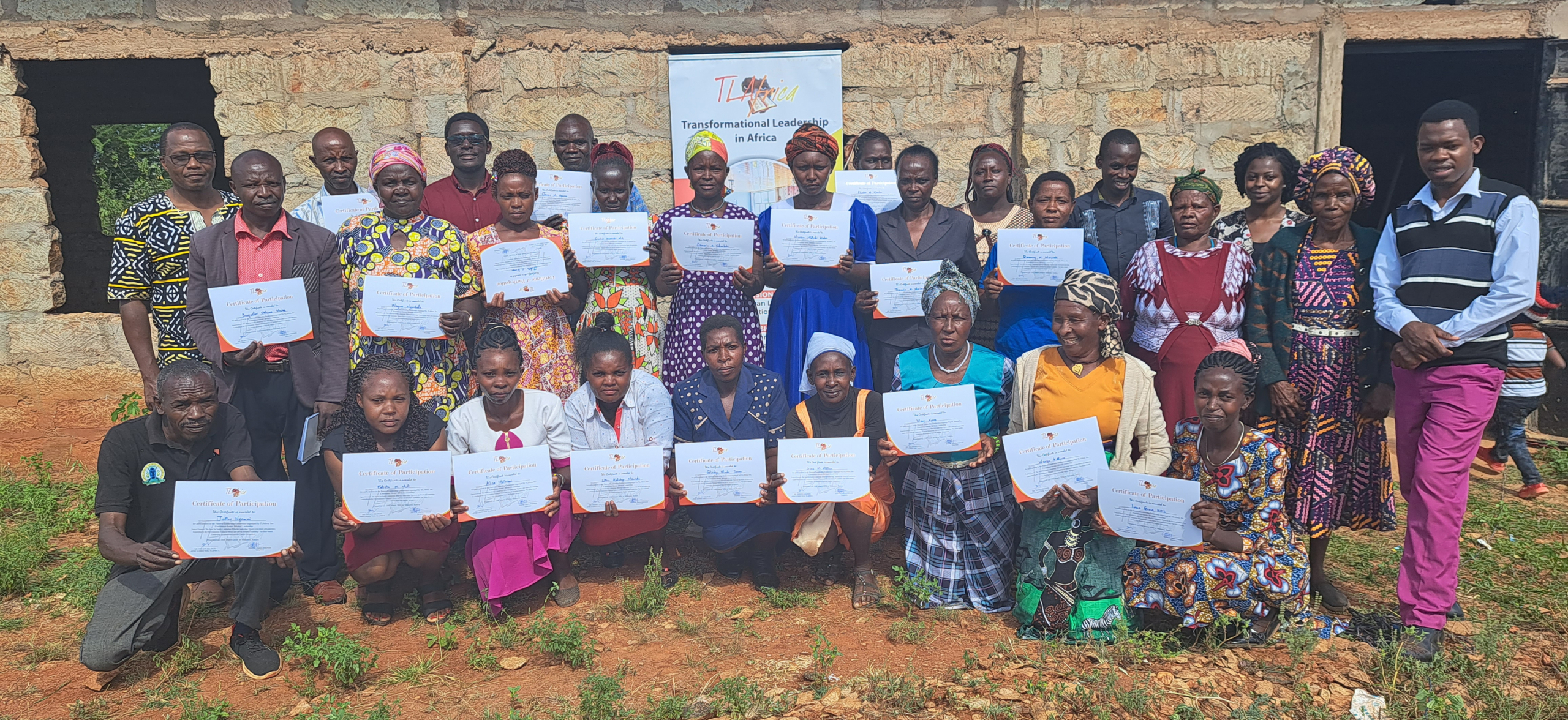Musanze, December 1-4, 2021
Thirty-five (35) pastors from various evangelical denominations in Rwanda came together for four days (December 1-4) to study the Gospel according to Luke. The main facilitator for the training was Dr. George Renner, who has taught Revelation, 1 Corinthians in the past. We also has Mr. Nelson Kilonzo, Chair of TLAfrica Kenya Board visiting. Nelson shared devotions on the 3rd and 4th day.
On the first day, Dr. Renner gave a general view of the book, emphasizing the characteristics of the ministry of Jesus such as: (1) Jesus lived and ministered in the power of the Holy Spirit; (2) His purpose was to announce the Kingdom of God; (3) His teaching was that God’s salvation was for everyone, not just the Jews. No wonder the genealogy of Jesus in Luke presents Jesus as the son of Adam, the son of God (Luke 3: 37); (4) Jesus gave great importance to prayer life.
On the second day, the facilitator delve into various themes in Luke, and the first one was about the Kingdom of God. This was a new type of invasion which was not done by physical weapons, but by the proclamation of the reign of God. This invasion (both in Luke and Acts) was done by simple people but filled with the power of the Holy Spirit. We discussed the Kingdom principles and found that church leaders should make the Kingdom of God a priority in their proclamation. They should also act as captains in the Kingdom of God movement and their life as well as the life of all the disciples of Christ should be a yeast in the movement.
We also learnt that the Kingdom of God is holistic and includes issues such as (1) the forgiveness of sins to set people free so they can serve in the Kingdom; (2) Justice, peace and healing; (3) reconciliation and prosperity (4) eternal life.
We dealt with several truths about the Kingdom, among them:
- God the Creator of the Universe is the true King (Ps. 47:7)
- God has delegated authority to man to rule this earth/world and to manage God’s creation;
- God does not rule by force; He wants willing servants; those who respond with love and obedience. Physical battle never wins!
- Satan is not the true King of the world; though he claims to be the ruler; yet he is not ;
- God’s Kingdom manifests itself through healing and confrontation of evil.
- Satan’s greatest defeat was Christ laying down his own life because Satan’s greatest weapon is death. Christ defeated death – Halleluiah!
- New life in Christ means transfer of allegiance from Satan to Christ.
- Repentance is the most important starting point in entering the Kingdom of God;
- Jesus’ baptism was His identification with us. It’s a symbol that we have accepted to die with Him and come out of death with new life (resurrection).
- The genealogy of Jesus in Luke indicates that Jesus came for all of us, including gentiles.
The theme on the second day was about temptations.
- The temptation of turning stones into bread is about self-centeredness. Satan tempts us through our gifts, abilities and talents. For instance, there is temptation for us humans to use our possessions to satisfy ourselves instead of bringing glory to God.
- The temptation of seeing the world is about power. Power can lead to the worship of Satan. Sometime leaders want to achieve their goals by Satan’s means!
- The temptation to jump off is about distorting God’s word. Sometimes we want to do something contrary to the law of nature and we say God will protect us. For instance, not taking a COVID-19 Vaccine in the pretext that God would protect us, is distortion of God’s Word!
On the third day, we covered the theme on leadership. The facilitator integrated Jesus teaching in Luke with Kouzes & Pesnez model of transformational leadership consisting of five practices of effective leadership, namely:
- Effective leaders model the way; they are an example for applying the values and focusing on the purpose of the ministry/organization
- They inspire a shared vision till followers make the vision theirs;
- They challenge the process and may even cause some disturbances to clear obstacles in order to achieve their goal.
- They enable others to act. They build others up and expect everyone to participate. They don’t do everything themselves;
- They encourage the heart.
While in his earthly ministry, Jesus proved to be the most excellent transformational leader. He had a single and undivided commitment and he remained true to the purpose and His Father’s mission despite great stress. He wanted only His Father’s will to be done.
His passion and commitment were for the good of others. He was not trying to help himself get better; everything he did was for the good of other people.
Also, effective leaders:
- Live responsibly (with modesty)
- They are willing to be among people they serve;
- They nurture a prayer life;
- They are willing to suffer physically in the pursuit of their vision;
- Jesus refused to use violence and did not revenge. He never returned evil for evil
- He never compromised the means in the pursuit of the goal.
On the fourth day, we covered the theme of healing ministry in the local church. The following were highlighted as main reasons for healing ministry in the local church:
- Jesus healed people because it was part of his purpose to give holistic peace (shalom).
- Jesus genuinely loved people. He never intended to become famous or get money as it is today among some preachers;
- Healing became a sign that God’s Kingdom is invading Satan’s kingdom. When he healed a person who was a slave of Satan, Jesus was claiming that person for the Kingdom of Light.
- Healing is a verification of Jesus’ identity as Messiah.


Note the following truths:
- Not everyone who was sick received healing. Even those who were healed finally died. That is why Jesus’ inner healing was the most powerful demonstration of the power of His Kingdom;
- Jesus never asked money to those he healed. We should be suspicious to those who ask money for healing ministry;
- Healing can be done by false spirits. We need discernment to detect the source of power of healing;
- True healing ministry should be undertaken in the framework of the local church;
- Forgiveness is closely related to healing (Ps. 32). Unconfessed sin can damage the body; but sin is not the only reason for sickness
We discussed the following suggestions for a healing ministry in a local church:
- Be certain that all the glory goes to Jesus;
- Healing ministry should be an authorized ministry in the local church;
- The ministry should be led by the pastor or elders, or someone identified with a healing gift;
- The ministry should not be a public show. It rather requires prayer and silence, counseling and confession of sins.
- There must be prayer before the healing ministry to discern the will of God for the sick person
- It’s good to read one of the stories of healing from the Gospels;
- Then call upon the Lord and believe God’s heart of compassion to heal the sick person.
Practice during the Conference
- Every session had a question or two for Group Discussion where pastors were learning from each other. During the plenary session after group discussions, the facilitator was also learning from the findings from pastors who also came with their personal and ministry experiences;
- We ended every day with questions for “day insights” whereby several pastors who make statements on how a particular teaching was transformative to them and why.
- At closing session just before we gave them their certificate, we had some few testimonies and some of them are in a video that we shared at the Website.





